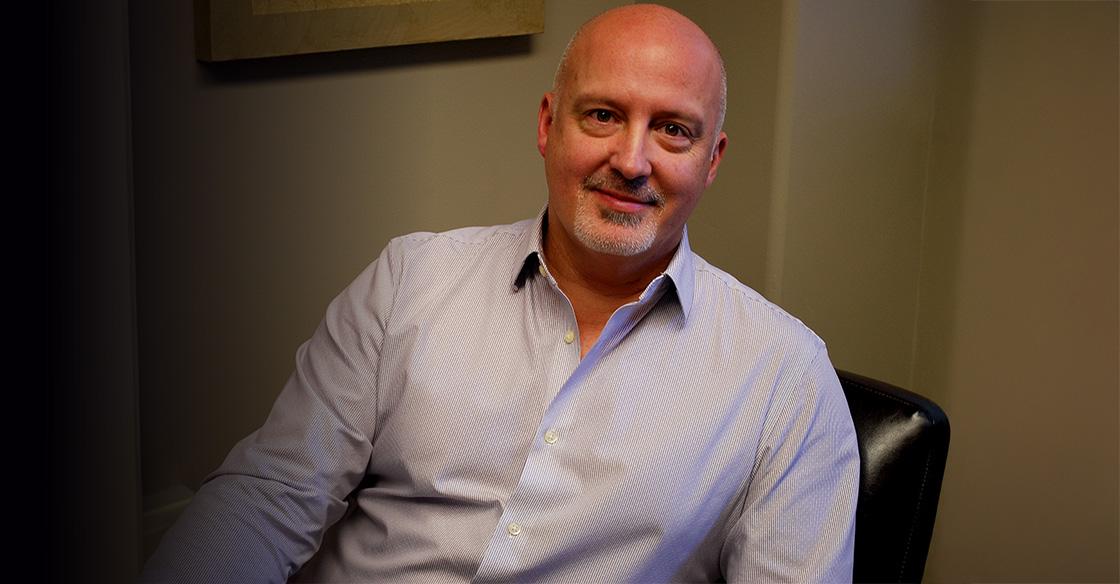
Mental health care is a very personalized journey. No two people with mental health disorders share the exact same experiences in the lead up to, or treatment after, their diagnosis.
Now add to the weight of the diagnosis, living in rural Nova Scotia, where some must travel to receive needed services. Or having cultural needs to be factored into your care.
These key components of care for schizophrenia and other psychotic disorders are the focus of one of two new research studies made possible by the QEII Foundation’s Health Equity Fund.
This fund — a Canadian first to activate intentional solutions to deliver more equitable health care — is made possible by a $1-million donation from Emera to the QEII Foundation, first announced in January 2025.
Leading the research for this particular study is Dr. Phil Tibbo, the Paul Janssen Chair in Psychotic Disorders, Department of Psychiatry, Dalhousie, QEII Health Sciences Centre.
Dr. Tibbo believes this is an amazing opportunity for research and advancing care fidelity.
“This is all about equity. The whole focus of this grant is around early phase psychosis care or early intervention for psychosis. We know that as with almost anything in medical care, the sooner things are identified and treated, the better the outcomes. We also have 30 years of care models and standards of care for these disorders, but they are often based off urban models and urban care.”
Nationally it is accepted that at any point in time, four per cent of the population is living with a psychotic disorder. In Nova Scotia, this means up to 29,000 people live with a psychotic disorder – many of whom don’t live in the Halifax area, or Nova Scotia Health’s Central Zone, notes Dr. Tibbo.
“We have a provincial network of these programs so we can’t assume how we measure the standards of care will be the same in Halifax and Central Zone as it would be in the other parts of the province. For example, in Central Zone, we have a standalone, 9am-to-5pm, Monday-to-Friday clinic, servicing our youth and young adults with these disorders because of the population and distribution. We don't have standalone clinics per se in the rest of the province.”
Dr. Tibbo feels strongly about the importance of making the care for psychotic disorders the same across Nova Scotia.
“We realize that rural youth and rural young adults face challenges when it comes to mental health care. There’s potential for more stigma in small towns – even access to public transportation. Sometimes the patients and their families or support people need to drive a fair distance to get the care they need. We also need to consider how health care is funded and what programs are set up in rural communities. We just want to make sure that from an equity standpoint; we have the exact same care happening within these rural populations.”
While Dr. Tibbo acknowledges Nova Scotia’s population is now 48 per cent rural, he also points out the provincial rural population is growing and becoming more diverse with new Canadians.
“We want to make sure that we're able to capture their voices as well. In addition to that, of course, a number of our African Nova Scotian populations and communities and historic communities are based rurally. We need to look at our care – how we approach and measure it – to see if it’s appropriate for various communities.”
With a research assistant now in place, Dr. Tibbo anticipates the work funded by the Health Equity Fund will begin in early 2026, taking two years to complete. The research will include looking at the current provincial measurements in place for psychotic disorder care in Nova Scotia, along with surveying and focus groups of people from different populations.
“In the end, we really want to take those care fidelity measures and have them more relevant to the rural population. The goal of this research will be the construct of a newer measure of care for patients with this disorder that would be more sensitive and relevant to a rural population.”
Dr. Tibbo is grateful to Emera and its leadership for their vision to help create the QEII Foundation’s Health Equity Fund, helping ensure all Nova Scotian can receive inclusive care.
“Any kind of mental health funding for research is tough to get these days. And then when you're looking at service delivery research, that can be even more challenging. But having access to this funding allows us to move forward and ensure equitable care across the province. Donors are so important to this work. Thank you for recognizing the need and the importance of mental health research.”
The QEII Foundation’s new Health Equity Fund is providing grants to healthcare leaders and researchers whose work is advancing health equity for populations across Nova Scotia. Administered through the team at Research, Innovation, and Discovery at Nova Scotia Health, Emera’s gift will guarantee funding at $200,000 annually for the next five years.
This $1-million project is part of the QEII Foundation’s $100-million We Are campaign to transform health care at and through the QEII Health Sciences Centre.

